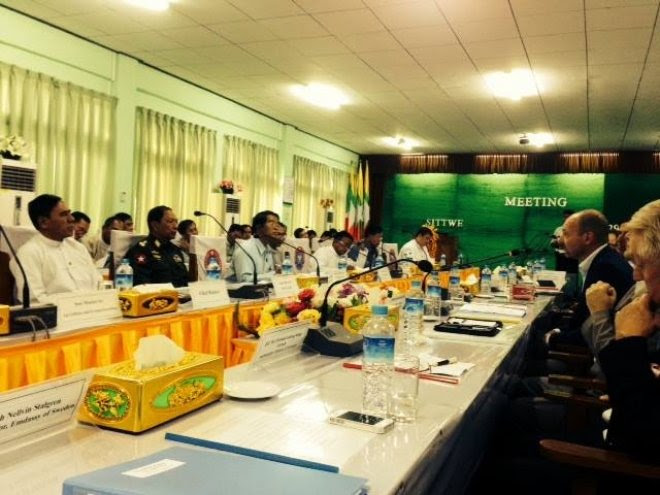The Rakhine State government has told a European Union delegation it cannot provide it with details of a long-term plan it has prepared for ending conflict and dealing with displaced persons, a minister told Mizzima on January 30.
The Rakhine State Minister for Construction, U Hla Han, referred to the plan when asked about a meeting the previous day with the delegation, headed by the EU ambassador to Myanmar, Mr Roland Kobia.

The meeting between ministers and the foreign envoys took place at government offices in the state capital, Sittwe.
U Hla Han said Mr Kobia had asked about the state government’s plans to deal with internally displaced persons and outbreaks of conflict.
“The number of refugees is increasing and the conflicts keep arising and they asked what programs were have prepared to deal with these problems,” U Hla Han said.
“The [Rakhine] government has a long-term plan but we can not yet tell them what it is,” he said.
The head of the Rakhine State Cabinet Information Department, U Win Myaing, said the EU delegation had also asked about a travel ban on the residents of camps housing Muslim IDPs.
U Win Myaing said there was no travel ban.
“They are allowed to go anywhere, without restrictions,” he said.
“However, for their own security, we have to prevent them from going to areas where most of the people are Rakhine [Buddhists].”
The meeting came during a three-day visit to Rakhine State by the delegation, during which it also visited camps in Sittwe housing IDPs.
The delegation also visited the townships of Mrauk-U, Myay-pon and Maungdaw.
Foreign ambassadors and UN agency officials were told at a briefing given by Union government ministers in Yangon on January 28 that reports of communal violence at a village in Maungdaw Township earlier in the month were without foundation.



